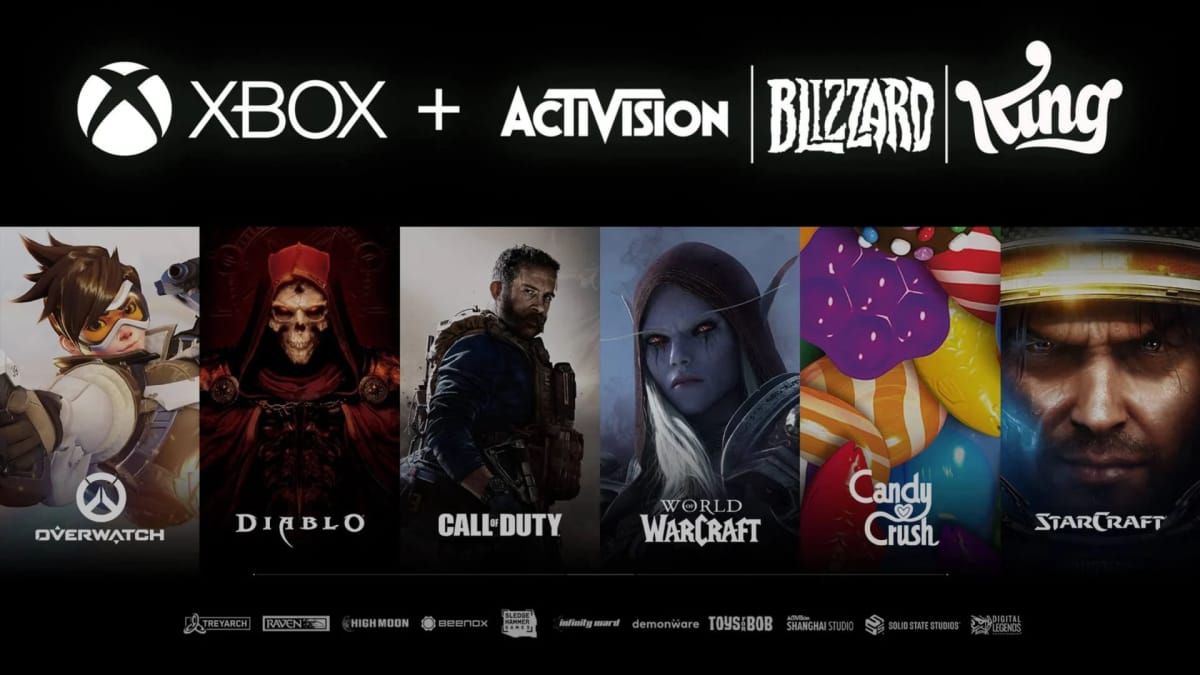Today South Korea's Fair Trade Commission has announced that it has cleared Microsoft's proposed acquisition of Activision Blizzard.
According to the official announcement, the approval was decided because the commission found that there is no tangible risk of hindering competition on the local market.
The KFTC ruled that, following its examination of the issue, it was unlikely for Microsoft to enact a foreclosure of its competitors by making Blizzard's games exclusive to its platform, and even if it did happen, there is little concern that it would cause competitors to be excluded from the market.
Looking specifically at the Korean market, the combined share of games developed by Microsoft and Blizzard is small. Unlike overseas, there are many game developers that competitors can work with as alternatives, preserving their ability to compete. Basically, the acquisition wouldn't be big enough in Korea to create a foreclosure situation.
According to the KFTC, the market share held by Call of Duty worldwide is between 6 and 8%, but in Korea, it's just between 0 and 2%. The Diablo franchise holds a market share between 0 and 2% both worldwide and in Korea.
On top of that, even if exclusivity was enforced, the effect it would have on the conversion of the competitor's customers into Microsoft's subscribers would be negligible due to the relatively low local popularity of Blizzard games. Since competitors hold a significant share of the console market share (PlayStation is estimated at 70-80%, Nintendo at 10-20%, and Xbox at 0-10% on the Korean market in 2021) there is no risk that they would be excluded from the competition.
As a matter of fact, the regulator finds that competition in the console market may actually benefit from the acquisition if Microsoft, which is in third place, is made more competitive as an effect.
As for the cloud, the KFTC estimates a market share of 60-70% for Microsoft and 30-40% for Nvidia, but considering Geforce Now's Bring Your Own Game business model, it actually helps increase sales of the games, creating a mutually beneficial effect. While it's true that Microsoft's share of the cloud market is high, and there are entry barriers, considering the characteristics of the market, the risk of damaging competition is low.
PC games are more popular than console games on the Korean market, so Nvidia, which bases its cloud business entirely on PC games, enjoys greater future scalability in the future compared to Microsoft. When Lost Ark was released on Geforce Now, the number of paid subscribers in Korea increased significantly.
On top of that, the cloud gaming market is in its infancy (it represents 0.02% of the total game market in Korea), and the share swings every year. With other companies like Sony, Amazon, and more that can enter the market in the future, concerns about lack of competition are small.
Speaking of the PC market, Windows has a high market share among operating systems (70-80%), but Windows PCs are mostly used for personal use including gaming, while PCs with Mac or Linux are mostly used for professional purposes. The KFTC ruled that even if the acquisition was not to occur, the possibility of Blizzard developing a game for other operating systems is extremely small. Essentially, the merger doesn't really affect competition in this field.
Since this is a merger between global companies, the regulator has engaged in multiple video conferences with foreign competition authorities to exchange ideas. It also collected opinions from stakeholders, including competitors. The difference in conclusions with other national regulators is due to significant differences in the competitive landscape in these countries compared to South Korea.
Recently, the European Union approved the deal including proposed remedies to level the competitive playing field on the cloud market, which Microsoft agreed to. A few days ago, we also learned that the deal was approved by the Chinese authority. South Korea's ruling brings the number of countries that cleared the acquisition to 38.
This leaves the British CMA isolated in its stance against the deal (followed by an appeal from Microsoft including some rather firm rebuttals of the ruling), with the American FTC matching its opposition, but having to go through a legal process to actually be able to block it.
In the meanwhile, a judge of the United States District Court Northern District of California denied the preliminary injunction requested against Microsoft in the so-called "gamers' lawsuit" which also aims to prevent the acquisition.







